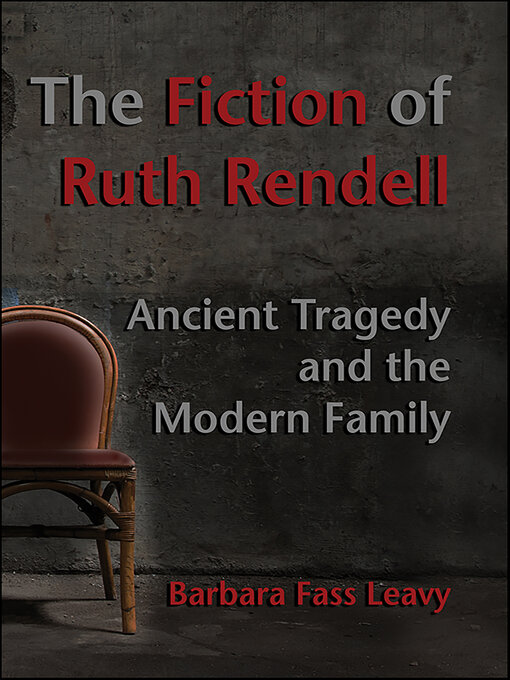A study of the role of family, ancient Greek narratives, and the psychological theories of Freud and Jung in the mystery novels of Ruth Rendell.
Aside from Ruth Rendell’s brilliance as a fiction writer, and her appeal to mystery lovers, her books portray a compelling, universal experience that her readers can immediately relate to, the intra-familial stresses generated by the nuclear family. Even those who experience the joys as well as pains of family life will find in Rendell the conflicts that beset all who must navigate their way through the conflicts that beset members of the closest families.
Barbara Fass Leavy analyzes the multi-leveled treatment of these themes that contributes to Rendell’s standing as a major contemporary novelist. Rendell, who also writes as Barbara Vine, draws on ancient Greek narratives, and on the psychological theories Sigmund Freud and Carl Jung derived from them, to portray the disturbed family relationships found throughout her work.
Leavy’s analysis considers what distinguishes mysteries as popular entertainment from crime fiction as literary art. The potential for rereading even when the reader remembers “whodunit” will be the basis for this distinction. Leavy also looks closely at the Oedipus and Electra complexes and how they illuminate Rendell’s portrayals of the different pairings within the nuclear family (for example, mother and daughter) and considers the importance of gender differences. In addition, Leavy corrects a widespread error, that Freud formulated the Electra complex, when in fact the formulation was Jung’s as he challenged Freud’s emphasis on the Oedipus story as the essential paradigm for human psychological development.

